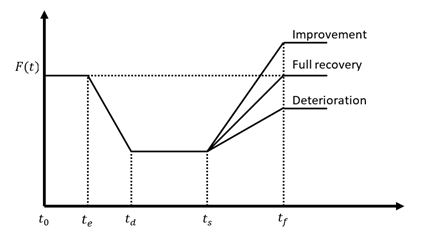GAANN Fellowship in Industrial and Systems Engineering
Program Summary
The U.S. Department of Education Graduate Assistance in Areas of National Need (GAANN) Fellowship Program at Ohio University supports graduate students pursuing doctoral degrees in Mechanical and Systems Engineering and will support PhD students working on Supply Chain research.
Industrial and Systems Engineering
The Graduate Assistance in Areas of National Need (GAANN) Fellowship in Industrial and Systems Engineering is available to graduate students with the goal of becoming university faculty members or other high-impact researchers. The fellowship is awarded based on academic performance and financial need, upon the approval of the Graduate School and the Department of Industrial and Systems Engineering.
Eligibility Requirements
-
Enrolled full-time in or admitted to the doctoral program in Mechanical and Systems Engineering
-
U.S. citizen, permanent resident, or a permanent resident of a Free State
-
Committed to a career as a university faculty member or high-impact researcher
-
Outstanding undergraduate and (if applicable) graduate academic record (cumulative grade point average)
-
Demonstrated financial need, determined according to federal guidelines
How to Apply
Step 1. Apply to the Ph.D. program in Mechanical and Systems Engineering.
Step 2. Email Dr. Felipe Aros-Vera at aros@ohio.edu expressing your intent to apply for the GAANN Fellowship.
Research Areas
Supply Chain Design
Design in a supply chain entails the analysis, visualization, and modeling of the stages involved, directly or indirectly, in fulfilling a customer request. In recent years and especially during the COVID-19 pandemic, we have seen how relevant is to continually evaluate such decisions as production planning (off shoring and the new trend of reshoring production), facility location, network flows in multimodal transportation networks, and impacts of local and global supply chains.
Supply Chain Resilience
As defined by the National Academies resilience is the “the ability to prepare and plan for, absorb, recover from, or more successfully adapt to actual or potential adverse events.” The study of resilience entails understanding the design, and capabilities of a supply chain, as well as analyzing the nature, impacts, and short- and long-term consequences of the disruption. The study of resilience requires analytical, computer programming and statistical tools.
Supply Chain for Social and Economic Prosperity
As a critical system in the country and global economy, supply chains also play a role in social and economic prosperity, job creation, access to products and services.
Learn more about Supply Chain Issues here

